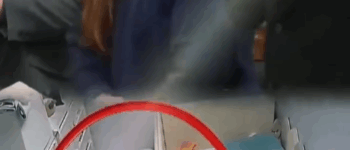Subtitle: A stand-your-ground incident in a quiet Georgia neighborhood raises questions about self-defense laws, escalating suburban violence, and the boundaries of moral responsibility.

Rossdale, GA – Early Tuesday morning, the calm streets of a Rossdale neighborhood turned into a scene of tragedy and controversy, as a local homeowner reportedly shot and killed three teenagers who allegedly attempted to rob him in his yard before dawn.
According to the Rockdale County Sheriff’s Office, the homeowner, identified as Joe Henke, has not faced charges at the time of reporting. Authorities are conducting a thorough investigation to determine whether the shooting falls within the protections of Georgia’s “Stand Your Ground” law.
Investigators confirmed that two firearms were recovered outside the home. Preliminary evidence suggests that one of the teenagers fired at Henke during the alleged robbery, prompting him to return fire. All three intruders were struck and killed.
A defense attorney, speaking on condition of anonymity, told reporters that initial reports indicate Henke acted within his legal rights. “The homeowner faced a direct and immediate threat,” the attorney said. “In situations like this, when your life is at risk in your own home, self-defense is strongly protected under Georgia law.”
The confrontation reportedly began around 4:00 a.m., when the teens allegedly attempted to rob several residents outside Henke’s home. Masked and armed, they allegedly initiated the attack. Neighbors described hearing gunshots echo through the quiet suburban streets.
Community Shock and Reactions
The neighborhood has been in shock since the incident. Daryl Cohen, a former prosecutor and defense attorney, said, “When a weapon is pointed at you, you have the right to defend yourself. These situations unfold in seconds, often with life-or-death consequences.”
Local resident Maria Reynolds recalled the chaos: “I heard the shots and ran outside. It was terrifying. I couldn’t believe this was happening in our street. Kids are dead, and someone defended his home. It’s hard to process.”

Families of the teenagers, however, have called the shooting murder, claiming that Henke acted excessively. “They were just kids. They made a mistake,” said a relative, visibly distraught. “No one deserves to die like that.”
Henke’s family and supporters maintain that he was protecting his life, his family, and his property. “Joe did what anyone would do if faced with armed attackers,” said a cousin. “He had no time to hesitate.”
The Legal Context: Georgia’s “Stand Your Ground” Law
Georgia law allows homeowners to use lethal force if they reasonably believe it is necessary to prevent death or great bodily harm. However, legal analysts emphasize that each case is heavily dependent on circumstances, such as the immediacy of the threat, the availability of alternative actions, and the presence of weapons.
Professor Linda Thompson, a criminal law scholar at Emory University, explained, “Stand Your Ground laws are intended to protect people defending themselves in their homes or public spaces. But these laws are controversial because determining what constitutes a ‘reasonable belief’ can be highly subjective, especially when minors are involved.”
A History of Similar Incidents
The Rossdale case is part of a broader pattern across the U.S., where suburban homeowners have used deadly force against intruders. Cases such as the 2012 Zimmerman trial in Florida and multiple stand-your-ground incidents in Georgia and Texas have sparked national debates about self-defense, race, and the ethics of lethal force.
In many of these cases, the line between lawful self-defense and criminal action is blurred. Public opinion often divides sharply along moral, legal, and social lines, reflecting deeper societal tensions about safety, property rights, and juvenile justice.
Investigative Challenges
Authorities are meticulously reviewing evidence, including ballistics reports, surveillance footage, and eyewitness testimony. According to Sheriff David Roberts, “While preliminary reports suggest a strong self-defense case, all details must be verified. We urge the public to reserve judgment until the investigation concludes.”
Investigators must also determine whether the teenagers were armed and if they posed an imminent threat. Witness accounts will be cross-examined against forensic evidence to establish a timeline of events.
The Human Dimension
Beyond the legal complexities, the tragedy underscores the human cost of escalating violence. Parents of the teenagers are grappling with grief and anger, while Henke’s family faces public scrutiny and potential long-term trauma. The neighborhood itself is left shaken, with some residents reconsidering safety measures and neighborhood watch protocols.
Daryl Cohen noted, “The psychological impact of such incidents can last years. Communities struggle to reconcile the need for safety with empathy for those involved. Everyone loses something in situations like this.”
Social and Ethical Implications
The Rossdale shooting raises critical questions about morality, legality, and societal responsibility. When defending one’s home, how should one measure the proportionality of force? How does society address crimes committed by minors while respecting self-defense rights?
Criminal justice experts argue for balanced discourse. Professor Thompson remarked, “Legal frameworks provide protection, but ethical debates persist. Incidents involving teenagers complicate matters because society expects leniency for youth, yet the law permits force when life is threatened.”
Moving Forward: Legal and Community Outcomes
Authorities have confirmed that the investigation will be thorough. Ballistics reports, witness interviews, and forensic analysis will inform whether charges should be filed. Meanwhile, the Rossdale community is seeking closure and understanding, grappling with the complexities of self-defense in an era of rising violence.
“This tragedy will remain in the neighborhood’s memory for a long time,” said Maria Reynolds. “We need to talk about safety, responsibility, and how to prevent these incidents. No one wants to see more lives lost.”
The Rossdale incident highlights the urgent need for awareness of legal rights, neighborhood vigilance, and the broader societal context in which home invasions occur. As the investigation continues, communities across the country will watch closely, reflecting on the delicate balance between defending property and valuing human life.
Conclusion
The shooting in Rossdale exemplifies the intersection of self-defense laws, ethical dilemmas, and the human toll of violence. While legal protections exist for homeowners, the consequences of split-second decisions are profound and irreversible. As families mourn, neighbors fear, and investigators seek the truth, society is reminded that the boundary between protection and tragedy is often razor-thin.


